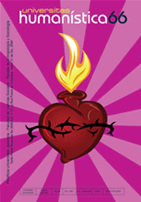Abstract
Lately, several authors have been analyzing the changes in rural areas triggered by globalization. The concepts of new rurality and pluriactivity have allowed progress along these lines, highlighting the new difficulties facing the most vulnerable sectors. This study explores the transformation of peripheral rural territories in Mendoza (Argentina), particularly those that have been thought of as isolated and traditional. This research develops from a case study, combines quantitative and qualitative methods, and takes the production undertakings happening in those lands as units of analysis. Production and economic situations of the past are compared to those in the present. The tendency toward pluriactivity is here considered as a response to the new conditions, and also as an expression of the process of articulation with the capitalist system.

This journal provides immediate open access to its content on the principle that making research freely available to the public, encourages greater global exchange of knowledge.
The journal Universitas Humanística is registered under a Creative Commons Attribution 4.0 International Public License. Thus, this work may be reproduced, distributed, and publicly shared in digital format, as long as the names of the authors and Pontificia Universidad Javeriana are acknowledged. Others are allowed to quote, adapt, transform, auto-archive, republish, and create based on this material, for any purpose (even commercial ones), provided the authorship is duly acknowledged, a link to the original work is provided, and it is specified if changes have been made. Pontificia Universidad Javeriana does not hold the rights of published works and the authors are solely responsible for the contents of their works; they keep the moral, intellectual, privacy, and publicity rights.
Approving the intervention of the work (review, copy-editing, translation, layout) and the following outreach, are granted through an use license and not through an assignment of rights. This means the journal and Pontificia Universidad Javeriana cannot be held responsible for any ethical malpractice by the authors. As a consequence of the protection granted by the use license, the journal is not required to publish recantations or modify information already published, unless the errata stems from the editorial management process. Publishing contents in this journal does not generate royalties for contributors.


